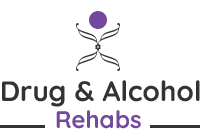Addiction is a complex disease of the mind and emotions that stem from multiple influencers. People who are addicted to drugs and alcohol continue to use and drink despite devastating consequences. The stories about addicts and alcoholics using drugs and or drinking even while their bodies and health are severely deteriorating or getting arrested and sent to prison are not enough to make them quit. The result for many people who struggle with an addiction to drugs and alcohol is often death.
 How to Find the Best Drug Rehab Programs
How to Find the Best Drug Rehab Programs
The programs that are now available to help people get free from their substance use disorder, also known as addiction, are far more advanced and in-depth than before. As part of the National Institutes of Health (NIH), the National Institute on Drug Abuse (NIDA) has determined what constitutes an effective addiction treatment program. The institute emphasizes that addiction is a disease that affects the normal functioning of the brain. They also recognize that some people are predisposed to get addicted to a subspace while others will not.
Alcoholism Treatment Centers Near Me
The list of essential components that a substance abuse treatment center must provide according to NIDA is summarized and includes:
- Medically Assisted Detoxification and Drug Treatment: Detox is only the first stage of addiction treatment and by itself does little to change long-term drug abuse. Patients should be encouraged to continue drug treatment following detoxification.
- Varied Treatment Options and Methods: No single treatment is appropriate for everyone. Matching treatment settings, interventions, and services to an individual’s particular problems and needs is critical to their ultimate success.
- Immediate Access to Treatment: Taking advantage of available services the moment people are ready for treatment is critical. The earlier treatment is offered in the disease process, the greater the likelihood of positive outcomes.
- Personalized Treatment Programs: Effective treatment must address the individual’s drug abuse and medical, psychological, social, vocational, age, gender, race, culture, family history, and legal problems.
- Availability of Long-Term Treatment Programs: Remaining in treatment for an adequate period of time is critical. Research indicates that most addicted individuals need at least three months in treatment to reduce or stop their drug use significantly. The best outcomes occur with longer durations of treatment.
- Provide Behavioral Therapies: Cognitive behavioral therapy, dialectical behavioral therapy combined with individual, family, or group counseling—are the most commonly used forms of drug abuse treatment.
- Medication-Assisted Treatments (MAT): Medications are a vital treatment element for many patients, especially when combined with counseling and other behavioral therapies.
- Modification of Treatment Goals: An individual’s treatment program must be assessed continually and modified as necessary to ensure that it meets his or her changing needs.
- Emotional and Mental Health Assessment and Treatment: Many drug-addicted individuals also have other mental disorders. Because drug abuse and addiction often co-occur with other mental illnesses, patients presenting with one condition should be assessed for the other(s). (NIDA)
New research on addiction and the brain and other facets of this disease continue to move forward. It promises more treatment options to help reduce the number of people who suffer from the disease of addiction. Evidence-based forms of treatment, holistic therapy, one-on-one counseling, and group counseling combined with support from a recovery group, sponsor, or counselor, and reassurance from their family are vital to the success of a person’s recovery. To learn about drug addiction and alcohol treatment programs, please reach out to one of our specialists.
